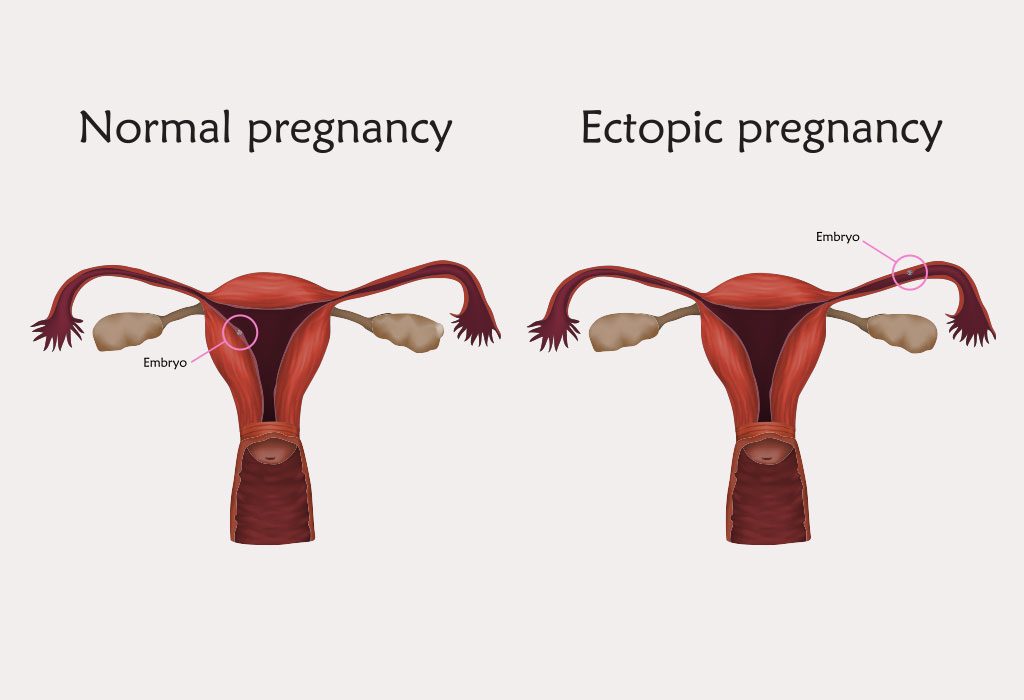In this Article
In an ectopic pregnancy, the embryo implants itself in the fallopian tube. This puts the lives of both the mother and the baby at risk. If you’ve had an ectopic pregnancy, you may be wondering, “Is it possible to have a normal pregnancy after an ectopic pregnancy?” We’ll tell you.
Can You Get Pregnant After an Ectopic Pregnancy?
It is possible to have a normal pregnancy even if you have a history of ectopic pregnancy. You can get pregnant after an ectopic pregnancy tube is removed as long as you have one fallopian tube. However, if both of the tubes are removed, then it may not be possible to get pregnant through the natural process unless you opt for IVF.

What Are the Odds of Having an Ectopic Pregnancy Again?
If your last pregnancy was an ectopic one, it’s highly likely that the next one will be, too. These factors increase the chances of ectopic pregnancy:
1. Infertility
If you have a medical history of infertility, the odds of ectopic pregnancy increase.
2. Oddly Shaped Fallopian Tubes
Fallopian tubes that are not typically shaped prevent the sperm from reaching the uterus. Thus, they increase the chances of ectopic pregnancy.
3. Smoking
Smoking causes the eggs to implant itself outside of the uterus. It is believed that smoking increases the chances of ectopic pregnancy by four times.
4. Age
Age is another factor which is strongly linked with the ectopic pregnancy. Its odds are high for women above 35 years of age.
5. History of Ectopic Pregnancy
If you have a history of ectopic pregnancy, then there are 10% chances for you to have an ectopic pregnancy again.
How Long Should You Wait to Conceive After an Ectopic Pregnancy?
Doctors generally advise waiting for at least three months or two full menstrual cycles before trying for pregnancy. How long you’ll have to wait also depends on the complications of your previous pregnancy.
This timeframe is recommended so that the doctor can be clear about the Last Menstrual Period (LMP) date. This date plays a major role in preventing an ectopic pregnancy.
Usually, the first period after an ectopic pregnancy has a heavier flow. However, you will have a normal period from the second period. A normal menstrual period indicates that you are hormonally healthy, implying that you are ready to conceive again.
Tests to Prevent an Ectopic Pregnancy
You can prevent an ectopic pregnancy with tests like:
1. Hysterosalpingogram Test
Usually, an ectopic pregnancy is treated through laparoscopy or salpingogram (involving the removal of the whole tube or a part of it). Salpingogram is rarely implemented as there’s a risk of blocking or damaging the tube. A hysterosalpingogram test is done to check if the tube is blocked. In case, your fallopian tube is blocked then you are at a higher risk of having another ectopic pregnancy. However, you will have to opt for IVF if both of your fallopian tubes are removed.
2. Chlamydia Check-Up
Presence of chlamydia increases the chances of ectopic pregnancy, so it’s advised to take a chlamydia checkup. Usually, chlamydia is present in infected semen or vaginal fluids. It is a sexually transmitted infection, which may be passed through unprotected sex or sharing sex toys with a chlamydia-infected person, or from a pregnant mother to her unborn baby. Hence, a chlamydia check-up will be done and if this infection exists, your doctor will take the necessary measures to treat it.
Pregnancy is a wonderful experience but it comes with its share of complications. Ectopic pregnancy, shouldn’t be ignored as it poses a risk to two lives – that of the mother and the baby. For a safe and smooth delivery, consult your gynaecologist.







